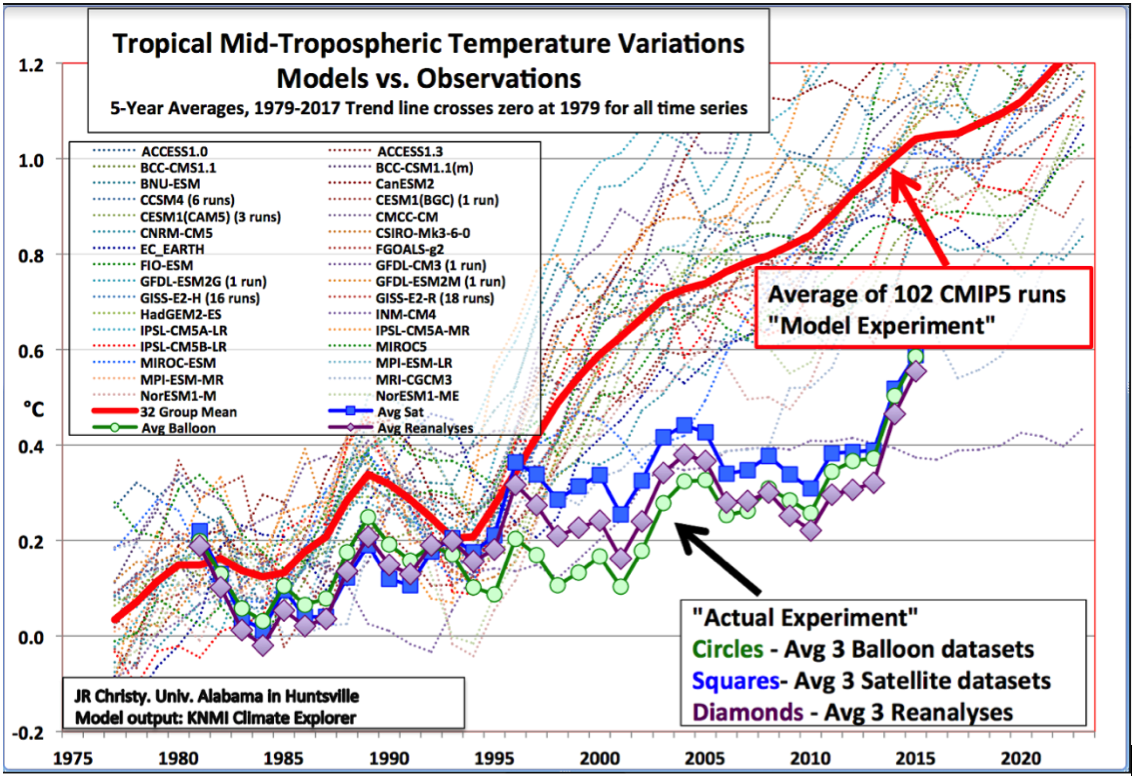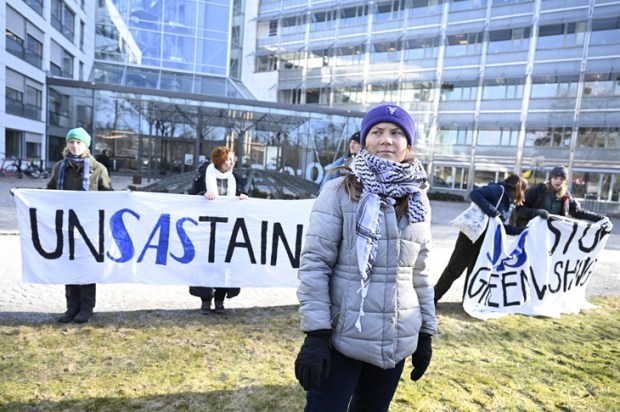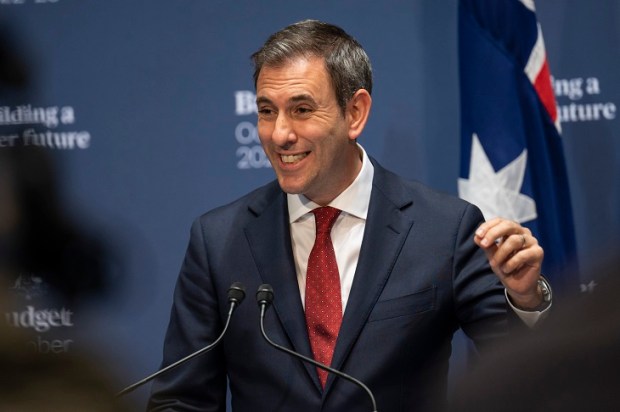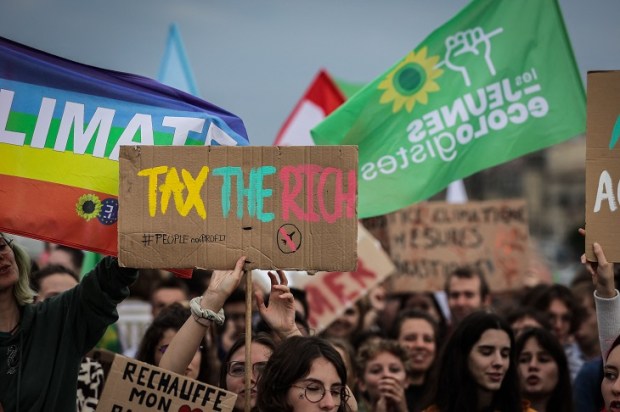Writing in The Guardian Australia, Geoff Sparrow is not the first person to call for a socialist “dictatorship of the proletariat” as the only means of markedly reducing emissions of carbon dioxide and other greenhouse gases. In a curious conflation of this with surveys that appear to show an attraction to socialism in the part of young people, he argues modern capitalism means ruination of the planet as well as Marxian impoverishment of the worker and “the steady destruction of social welfare, a preposterously unaffordable housing sector, an increasingly sinister security state and a political culture dominated by race-baiting charlatans”.
Big call!
It is true that many people in each new generation need to be freshly disillusioned by the observed deficiencies of socialism wherever it is practised. Seventy years after Marx and Engels published their Communist Manifesto we saw its principles being put into place in the Soviet Union followed, 30 years later, in Eastern Europe and China.
The collapse of the Soviet bloc and the self-destruction of socialism by the Chinese Communist Party testified to its failure as an economic system on top of its abysmal record regarding civil liberties. Once the Communist countries returned to capitalism with private ownership their economies started to prosper – spectacularly so in the case of China.
But from the ashes of these failures arose further experiments, notably Cuba and Venezuela, countries where socialism once again failed, shifting them from among the richest to the poorest in Latin America.
Mr Sparrow discloses that he is a member of the Victorian Socialists seeks to introduce a new trial of the approach in Australia.
To him and others (but not the affluent burgers of Wentworth) the attraction of socialism in seizing wealth ostensibly to give to the poor is reinforced by it institutionalising a system of government which he considers is the only means of decarbonising the economy. That has certainly worked for Venezuela which has seen per capita emissions of carbon dioxide decline 16 per cent this century!
Energising the calls for climate action has been the latest IPCC report claiming that we have to prevent the global temperatures from rising more than 1.5°C or face horrendous consequences. The IPCC and its supporters call for massive changes in land use, transportation, agriculture, buildings and energy production that is possible only by socialistic control.
At issue is how much warming, if any, is likely from the emissions of carbon dioxide – actually the repatriation to the atmosphere of carbon dioxide absorbed over the millennia by plants and buried as what we call fossil fuels. Over millions of years, this process has caused atmospheric CO2 levels to fall to historically very low levels; increases in atmospheric carbon dioxide levels over the past 2-3 decades have had a fertilisation effect bringing an 11 per cent re-greening of the planet.
A doubling of CO2 and other greenhouse gas concentrations in the atmosphere would theoretically bring about a 1°C increase in global temperatures. Thirty-one of the thirty-two models favoured by the IPCC project a warming trend of 2-4°C based on the pure CO2 effect being amplified by water vapour, the evidence for which is non-existent. In one model (from Russia) that the amplification effect is largely absent and that model is alone in having accurately tracked global temperatures over the past 30 years. Shown below are the various model projections and their average measured against actual temperature trends.
 Not only has the projected warming not materialised but there are moreover no dire consequences on mankind and the global ecosystem of a warmer climate. In relatively recent history, ten and sixteen centuries ago, the earth was much warmer than today. Propaganda about loss of coral reefs and of species as a result of a warmer climate defy the evidence of their survival, indeed flourishing in such situations.
Not only has the projected warming not materialised but there are moreover no dire consequences on mankind and the global ecosystem of a warmer climate. In relatively recent history, ten and sixteen centuries ago, the earth was much warmer than today. Propaganda about loss of coral reefs and of species as a result of a warmer climate defy the evidence of their survival, indeed flourishing in such situations.
Even the IPCC in the “small print” of its mega reports sees the costs of warming as being trivial. It identifies only three studies as having gone through sufficient peer review to be credible estimates of the costs and benefits involved, one by Nobel prize winner William Nordhaus who has specialised in estimating the effects of global warming on the world economy. All three IPCC-approved studies show relatively minor costs as a result of projected global warming, even though they accepted without qualification the most extreme detrimental effects said to emanate from this – including crop reductions, hurricanes, desertification of eastern Australia, increases in disease, and lost infrastructure.
Nordhaus estimated the loss of global GDP from an increase in temperatures of 3°C was just 2.5 per cent. Hence, the “greatest moral issue of our time”, which has brought down political regimes and undermined the competitiveness of the Australian economy would, even with all the exaggerated costs assessed by the alarmists, allow the saving of just one year’s growth!
It is doubtless true that emission reductions deemed necessary by the alarmists are impossible without socialist control. And this becomes a totally hopeless prospect given that the US with 15 per cent of emissions has joined China, India and other developing countries (accounting for 60 per cent of emissions) in refusing to take any abatement action.
Sadly for the friends of socialism, measures that would drive Australia along the Venezuelan road would not have any effect on curbing global emissions of greenhouse gases. That and the, at most, trivial cost of any feasible level of human-induced temperature increases means Australia can revert to business-as-usual. We can, in short, resume along the path to prosperity which economy-sapping greenhouse mitigation measures in energy, land clearing and other areas have brought us much lower living standards than would otherwise have prevailed.
The first step as to be to dismantle the subsidies that regulatory policies and government support has given to renewable energy. This is not only twice the cost of energy from coal and gas but is unreliable and forces the closure of lower cost coal power stations bringing escalating electricity prices to the detriment of industry and household consumers alike.
Alan Moran of Regulation Economics is the author of “Climate Change: Treaties and Policies in the Trump Era”.
Got something to add? Join the discussion and comment below.
Got something to add? Join the discussion and comment below.
Get 10 issues for just $10
Subscribe to The Spectator Australia today for the next 10 magazine issues, plus full online access, for just $10.


























Comments
Don't miss out
Join the conversation with other Spectator Australia readers. Subscribe to leave a comment.
SUBSCRIBEAlready a subscriber? Log in